13th. By permission of the Colonel went to Uncle Jones’, took my fatigue coat. Supper at Uncle Albert’s–a pleasant visit.
American Civil War Chronicles
“An immense Union force now on the other side of the Potomac.”—Horatio Nelson Taft
November 13, 2021
WEDNESDAY 13
Another warm pleasant day. Went down to the War Dept with Lieut Gaul to see the Ajutant Genl, came back by the Post office. Have been at home the rest of the day, have exacted lessons from the boys in their school books. Positive news from the Fleet obtained at last, everywhere successful. An immense Union force now on the other side of the Potomac. The Camps extend back 8 or 10 miles from the River. Julia is rather better.
______
The three diary manuscript volumes, Washington during the Civil War: The Diary of Horatio Nelson Taft, 1861-1865, are available online at The Library of Congress.
Downing’s Civil War Diary.–Alexander G. Downing.
November 13, 2021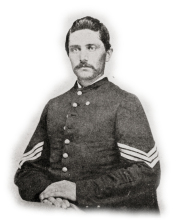
Wednesday, 13th–The weather is getting cold, which makes it rather disagreeable eating our meals at the long tables outside the barracks; besides, the coffee and victuals cool off so quickly.
“The retreat was a route, for our men were scattered everywhere.”–Army Life of an Illinois Soldier, Charles Wright Wills.
November 13, 2021
Bird’s Point, November 13, 1861.
Home once more. We all call this home now. Just as we landed last night the Iowa 7th was forming for dress parade. One company had but 11 and another but 15 men; all that came out of the Belmont fight safely. Other companies had half and some three-fourths of their men they started with. General Grant tries to make out that there were about 150 or 175 men lost on our side, but I’ll stake my life that we lost not less than 500. I am sure that the 22d Illinois lost not less than 175, the 7th Iowa at least 200, and the other three regiments 150 more. Grant says that he achieved a victory and accomplished the object of his expedition. It may be so (the latter part of it) but almost every one here doubts the story. He says his object was to threaten Columbus, to keep them from sending reinforcements to Price. Well he has threatened them, had a fight, and why they can’t send reinforcements now as well as before, is more than I know. I never will believe that it was necessary to sacrifice two as good regiments as there were in the West, to accomplish all that I can see has been done this time. Altogether there were some 6,000 men from here, Cape Girardeau and Ironton, on the expedition that our regiment was on marching by different roads. Grant says now that we were all after Jeff Thompson. I don’t believe it. I think the Paducah forces were [continue reading…]
Rebel War Clerk
November 13, 2021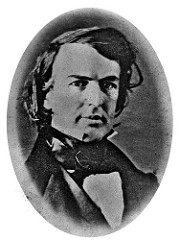
NOVEMBER 13th.—Dry goods have risen more than a hundred per cent since spring, and rents and boarding are advancing in the same ratio.
The first regiment ashore in South Carolina.–Woolsey family letters; Francis Bacon to Georgeanna Woolsey.
November 13, 2021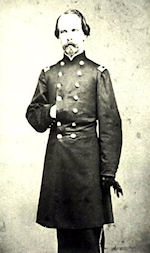
Tybee Island.
The 7th was the first regiment ashore in South Carolina. It made the first reconnoissance in force; a detachment of five companies occupied Braddock’s Point and its batteries, and was the first to reconnoitre Daufuskie and neighboring islands. The greater part of the regiment now holds this position, with a fragmentary German one. If you have ever wondered how I could be accessory to Sherman’s proclamation in any way, let me suggest in the faintest possible whisper that I improved the occasion to issue on my own account a considerable number of small proclamations “to the loyal people of South Carolina of various shades of black and yellow scattered over the country from Beaufort to Port Royal Ferry.”
“”It was, indeed, a magnificent sight, to see six hundred horses harnessed to a hundred wagons, in full run, in line..,”–Journal of Surgeon Alfred L. Castleman.
November 13, 2021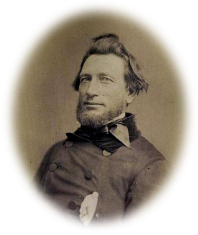
13th.–The Regiment received two months’ pay to-day, and to-night are all busy as bees making up express packages, to be sent to fathers, mothers, sisters, sweethearts and wives. To-morrow, all who can get passes to go, will be in Washington buying presents and sitting before a camera to “stain the glass” with reflections from their faces, all to be sent to friends at home. As man, in the mass, can be, in no condition, however bright, which will exempt him from cares, fears and apprehensions, so there is none so dark as to exclude hopes and anticipations of better things. Even here we have our joys and our aspirations, and these are of them. We preach that man should study to be contented. What! man in his imperfect condition, contented, that he, as an individual, or as a part of a great whole, should remain forever, as he is! It is opposed to all God’s plans. Discontent is the only stairway to progress. Through the discontent of Israel, Egyptian bondage was broken. The discontent of Russia brought war, which more than compensated for its ravages and its horrors, by the introduction of her people to a knowledge of liberal ideas. Czarism was shaken, and already the Goddess of Liberty waves her cap over the downfall of serfdom. The seceder’s discontent in England was the Genesis of a mighty nation. Elijah cast off the cloak, too small for his growing aspirations, whilst his followers eagerly grasped its folds to aid their progression. The discontent of an Almighty God substituted Noah for Adam– Christ for Diana–Eternity for Time. And is the discontent which occasioned this great war, with all its horrors, its butcheries, its temporary demoralization, to have no great result? Is it a bare interlude of the parties engaged, taking advantage of the time when “God sleepeth;” or is it a spark emitted from the great restless spirit of Jehovah, destined to ignite into a “pillar of fire,” and to light us on in the journey of universal progress?
“Hope springs eternal–”
I have to-day seen a “speck of war,” with another touch of Vandalism. I have, for the first time, seen an army in drill. Fifteen to twenty thousand men, a thousand horses, and one hundred artillery wagons, on parade. To me, who had never seen anything of the kind, it was grand, and looked like war. I note here an extract of a letter written to a friend to-day, attempting a description of part of it: “It was, indeed, a magnificent sight, to see six hundred horses harnessed to a hundred wagons, in full run, in line, like a regiment of infantry, and at a word of command, to become so instantly and inconcievably mixed that you would think a universal smash inevitable, appear in another instant dashing across the vast plain without a wagon attached. Turn your eyes to see the wrecks, and you will be surprised to see the carriages in four straight lines, forming a hollow square, with the mouth of every gun pointing outwardly, and a laughing expression of “Surround me if you dare!” Another look will show you that the carriages are so close together that the horses can not pass between them, yet the wagon poles to which the horses had been hitched are all inside of the square. How did the six hundred horses get out? The cannon at once open their hundred mouths and are enveloped in smoke. The horses return, disappear for a moment in the dense smoke, and seemingly without their stopping long enough to be hitched to, the four lines straighten out into column, and the cavalcade is again dashing across the plain. In less than forty rods, the jumble is repeated, the square formed, the horses gone, and the hundred cannons again open. When did they reload?” The vandalism: The finest orchard I have seen in Virginia, was cut down today, and in one hour converted into a brush-heap; and for no other purpose than to give the infantry a chance to “show off” in an hour’s parade. The fruit trees were in the way, and were cut down! It will take forty years to replace that orchard.
Arrests.—William Howard Russell’s Diary.
November 13, 2021
November 13th.–Mr. Charles Green, who was my host at Savannah, and Mr. Low, of the same city, have been arrested and sent to Fort Warren. Dining with Mr. Seward, I heard accidentally that Mrs. Low had also been arrested, but was now liberated. The sentiment of dislike towards England is increasing, because English subjects have assisted the South by smuggling and running the blockade. “It is strange,” said Mr. Seward the other day, “that this great free and civilized Union should be supported by Germans, coming here semi-civilized or half-savage, who plunder and destroy as if they were living in the days of Agricola, whilst the English are the great smugglers who support our enemies in their rebellion.” I reminded him that the United States flag had covered the smugglers who carried guns and matériel of war to Russia, although they were at peace with France and England. “Yes, but then,” said he, “that was a legitimate contest between great established powers, and I admit, though I lament the fact, that the public sympathy in this country ran with Russia during that war.” The British public have a right to their sympathies too, and the Government can scarcely help it if private individuals aid the South on their own responsibility. In future, British subjects will be indicted instead of being sent to Fort La Fayette. Mr. Seward feels keenly the attacks in the New York Tribune on him for arbitrary arrests, and representations have been made to Mr. Greeley privately on the subject; nor is he indifferent to similar English criticisms.
General McDowell asserts there is no nation in the world whose censure or praise the people of the United States care about except England, and with respect to her there is a morbid sensitiveness which can neither be explained nor justified.
It is admitted, indeed, by Americans whose opinions are valuable, that the popular feeling was in favour of Russia during the Crimean war. Mr. Raymond attributes the circumstance to the influence of the large Irish element; but I am inclined to believe it is partly due at least to the feeling of rivalry and dislike to Great Britain, in which the mass of the American people are trained by their early education, and also in some measure to the notion that Russia was unequally matched in the contest.
“We do not know that Charleston has been attacked. The fire works last night were part of a Serenade to Genl McClellan…”—Horatio Nelson Taft
November 12, 2021
TUESDAY, NOVEMBER 12, 1861.
A delightful day. Went this morning with Lieut Gaul to the Pay Masters Office, and from there to the U.S. Treasury. From thence I went to the Pat office where I had an interview with the Comr. He requested me to call again on Thursday. The question is a place. He talked favorable. No more new[s] from the fleet. We do not know that Charleston has been attacked. The fire works last night were part of a Serenade to Genl McClellan by Genl Blenckers Brigade which was a splendid affair. Julias cough is very bad.
______
The three diary manuscript volumes, Washington during the Civil War: The Diary of Horatio Nelson Taft, 1861-1865, are available online at The Library of Congress.
Winter camp?–Alexander G. Downing.
November 12, 2021
Tuesday, 12th–There is some talk of our having to stay here in camp all winter. Most of the men are getting rather restless and anxious to get to the seat of war. New companies for the Fourteenth Iowa are still arriving.
Rebel War Clerk
November 12, 2021
November 12th.—We have news of the enemy’s gun-boats penetrating the rivers of South Carolina. It is said they got some cotton. Why was it not burnt?
Success at Beaufort.—William Howard Russell’s Diary.
November 12, 2021
November 12th.–An irruption of dirty little boys in the streets shouting out, “Glorious Union victory! Charleston taken!” The story is that Burnside has landed and reduced the forts defending Port Royal. I met Mr. Fox, Assistant-Secretary to the Navy, and Mr. Hay, Secretary to Mr. Lincoln, in the Avenue. The former showed me Burnside’s despatches from Beaufort, announcing reduction of the Confederate batteries by the ships and the establishment of the Federals on the skirts of Port Royal. Dined at Lord Lyons’, where were Mr. Chase, Major Palmer, U.S.E., and his wife, Colonel and Mrs. Emory, Professor Henry and his daughter, Mr. Kennedy and his daughter, Colonel Wilmot and the Englishry of Washington. I had a long conversation with Mr. Chase, who is still sanguine that the war must speedily terminate. The success at Beaufort has made him radiant, and he told me that the Federal General Nelson (Since shot dead by the Federal General Jeff. C. Davis in a quarrel at Nashville.)–who is no other than the enormous blustering, boasting lieutenant in the navy whom I met at Washington on my first arrival–has gained an immense victory in Kentucky, killing and capturing a whole army and its generals.
A strong Government will be the end of the struggle, but before they come to it there must be a complete change of administration and internal economy. Indeed, the Secretary of the Treasury candidly admitted that the expenses of the war were enormous, and could not go on at the present rate very long. The men are paid too highly; every one is paid too much. The scale is adapted to a small army not very popular, in a country where labour is very well paid, and competition is necessary to obtain recruits at all. He has never disguised his belief the South might have been left to go at first, with a certainty of their return to the Union.
Diary of David L. Day.
November 11, 2021Nov. 11. We are now fairly settled in camp life. Several other regiments from Massachusetts and other states are now with us, and drills, inspections and reviews are the order of the day. One can scarcely get time to wash his face, and take, as Gen. Scott said, a hasty plate of soup, before the drum calls to some kind of duty.
“News rcd tonight of the taking of Charleston S.C. by our ‘Expedition’ and fire works blazed for two hours.”—Horatio Nelson Taft
November 11, 2021
MONDAY 11
A windy morning with a storm threatened. Tent rather airy but slept pretty well. Went round and bade my friends good bye and started for home with Lieut Gaul about one o’clock in a hack which took us to Alexandria where we took the Boat for Washington. Got home about 3 o’clock. The Lieut stops with us a short time. News rcd tonight of the taking of Charleston S.C. by our “Expedition” and fire works blazed for two hours. Julia has been quite sick and still coughs badly.
______
The three diary manuscript volumes, Washington during the Civil War: The Diary of Horatio Nelson Taft, 1861-1865, are available online at The Library of Congress.
“These poor boys expect to be ordered to Romney; but wherever they go, they hope, by God’s help, to repel the invaders.”—Diary of a Southern Refugee, Judith White McGuire.
November 11, 2021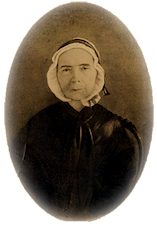
Monday Night.—To-day M. P. and myself went to Winchester, and thence to the camp. We took Mr. P. N’s children to see their father. There we saw W. B., J. M. G., and many other young friends, and were much pleased at their cheerfulness. They look sunburnt and soldierly. I returned to Winchester to see my dear S. S. R. C. was sitting with her, looking well and happy. Camp-life agrees with him. These poor boys expect to be ordered to Romney; but wherever they go, they hope, by God’s help, to repel the invaders.
Rebel War Clerk
November 11, 2021
NOVEMBER 11th.—Bad news. The Unionists in East Tennessee have burnt several of the railroad bridges between this and Chattanooga. This is one of the effects of the discharge of spies captured in Western Virginia and East Tennessee. A military police, if properly directed, composed of honest men, true Southern men, might do much good, or prevent much evil; but I must not criticise Gen. Winder’s inefficiency, for he acts under the instructions of Mr. Benjamin.
The burning of these bridges not only prevents the arrival of an immense amount of clothing and provisions for the army, contributed by the patriotic people, but it will embarrass the government in the transmission of men and muniments of war, which an emergency may demand at any moment. Until the avenues by which the enemy derives information from our country are closed, I shall look for a series of disasters.
“At Round Pond an intelligent man told us that 17 men (Union) had been hung and shot inside of three days…”–Army Life of an Illinois Soldier, Charles Wright Wills.
November 11, 2021
Cape Girardeau, November 11, 1861.
We have just arrived here after a week’s absence from any sign of civilized life. Saturday the 2d we (our company) went out six or seven miles from the Point to guard a bridge on the Cairo and Fulton Railroad. Sunday we came back to the Point, and found the tents of our regiment all struck and everything prepared for a march. By dark we were all safely stowed on the “Aleck Scott,” and also five companies of the11th Illinois. At 10 p.m. the boat shoved out, but had to tie to all night about 10 miles up the river on account of the fog. Monday at 10 a.m. we landed at Commerce between Cape Girardeau and Cairo and stayed there all night. Up to this time we had not the most distant idea of where we were going, but here we began to guess that we were after Jeff Thompson and company. Tuesday morning we started back into the country and camped for the night on Colonel Hunter’s farm, a distance of 18 miles. (I forgot to mention that the 18th and 22d Illinois with three companies, cavalry and two pieces artillery joined us before we started from Commerce, making a total of some 2,200 men.) This Colonel Hunter is in the Rebel Army When we stopped at his farm there was a large flock of sheep, at least 40 goats and pigs, turkey, geese, chickens and ducks without number. After we had been there a half hour I don’t believe there was a living thing on the farm that did not come with our train. I never saw a slaughterhouse on as large a scale before. The next day the boys made an awful uproar on the road, playing that the sheep, hogs, geese, etc., inside of them were calling for their comrades. Wednesday night we stopped at Little Water River and the slaughtering commenced immediately. All along the road up to this place every horse or mule that showed himself was gobbled instanter, a bridle cramped, and some footman made happy. It was hard to tell whether our force was infantry or cavalry that night. This was too much for the colonel, so next morning he drew the brigade up in column of company and gave us fits. He made the men turn every horse loose; told us that the next man that cramped anything without permission would be dealt with as severely as the regulations would allow. That suited me. I never have been disgusted with soldiering save in those two days, and I tell you that I did then feel like deserting. When we are marching through a country as thoroughly secesh as this is, I think that the men should be allowed fresh meat at the expense of the natives; but there is a proper and soldier-like way to get it. We can send our foraging party ahead and have all we want at camp when we halt, but to allow men to butcher everything they see is moblike. Wednesday night Jeff’s men tried [continue reading…]
Eliza Howland quotes General Blenker, “I will fight de enemy better as I shpeak your noble language.” and that she thinks Blenker kissed McClellan!—Woolsey family letters; Eliza to husband, Joseph Howland.
November 11, 2021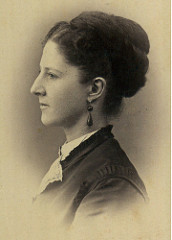
Ebbitt House, Washington, Nov. 11
It is very late, but I scribble a line before going to bed to say we got over safely from camp, stopping on the way for Mr. Hopkins, who is going to Poolesville with us to-morrow. We got in at six o’clock and since then we have been in a blaze of glory, for there has been a splendid torchlight procession in honor of McClellan, with rockets and blue lights and all sorts of fine things. Of course we followed it with Chaplain Hopkins, bringing up at Mrs. Hodge’s in H street, next door to McClellan’s own house, where the procession halted and called out Seward and Lincoln and Cameron and McClellan himself, and there were several little speeches, the best of which was General Blenker’s, who said: “Citizens and soldiers, when I shtand on de battle field with your thousands volunteers I will fight de enemy better as I shpeak your noble language.” Then on tiptoe he patted McClellan on the back and I think kissed him! Seward’s speech was highly vague and promiscuous.
We came home at midnight, just now, with our patriotic noses smutty from the torches.
At 9 this morning we start for Poolesville and have the prospect of a fine day.
“All the diplomatists, with one exception, are of opinion the Union is broken for ever..,”—William Howard Russell’s Diary.
November 11, 2021
November 11th.–The United States have now, according to the returns, 600,000 infantry, 600 pieces of artillery, 61,000 cavalry in the field, and yet they are not only unable to crush the Confederates, but they cannot conquer the Secession ladies in their capital. The Southern people here trust in a break-down in the North before the screw can be turned to the utmost; and assert that the South does not want corn, wheat, leather, or food. Georgia makes cloth enough for all–the only deficiency will be in metal and materiel of war. When the North comes to discuss the question whether the war is to be against slavery or for the Union leaving slavery to take care of itself, they think a split will be inevitable. Then the pressure of taxes will force on a solution, for the State taxes already amount to 2 to 3 per cent., and the people will not bear the addition. The North has set out with the principle of paying for everything, the South with the principle of paying for nothing; but this will be reversed in time. All the diplomatists, with one exception, are of opinion the Union is broken for ever, and the independence of the South virtually established.
Downing’s Civil War Diary.–Alexander G. Downing.
November 11, 2021
Monday, 11th–No news of importance. Our regiment is gradually adapting itself to the military harness; the hardest thing to get used to is wearing the leather collars about our necks.
War Diary of Luman Harris Tenney.
November 10, 2021
10th. Sunday. Remained in camp. Chaplain preached a good sermon on morals. Read the Atlantic Monthly and Harper’s.
Diary of Horatio Nelson Taft
November 10, 2021
SUNDAY 10
A bright fine morning. Went out to the Sunday Inspection of the Regt. Saw all the officers afterwards. Visited the qrs of the men of the Lyons Co. The men were all extremely glad to see me at the Camp again. Chaplin Buck held services near his tent about 3 o’clock and a real Methodist meeting in the evening before his tent with a Bonfire in front made of brush. Walked over to the Fairfax Seminary with Lieut Swan. Went up on to the tower, had a most splendid view of the surrounding country, Potomac, Wn &c.
______
The three diary manuscript volumes, Washington during the Civil War: The Diary of Horatio Nelson Taft, 1861-1865, are available online at The Library of Congress.
Downing’s Civil War Diary.–Alexander G. Downing.
November 10, 2021
Sunday, 10th–We had company inspection this morning at 9 o’clock and preaching at 10. At 5 o’clock in the afternoon we had dress parade and then in the evening we had preaching again.
“We are greatly relieved to have that noble brigade in our midst; we have felt, for a long time, the want of protection.”—Diary of a Southern Refugee, Judith White McGuire.
November 10, 2021
10th.—Returning from church to-day, we were overtaken by W. B. C., on horseback. We were surprised and delighted. He soon explained his “position.” Jackson’s Brigade has been ordered to take charge of the Valley, and is coming to-day to Strasburg, and thence to Winchester. He rode across on R’s horse. He dined with us, and told us a great deal about the army, particularly about our own boys. We are greatly relieved to have that noble brigade in our midst; we have felt, for a long time, the want of protection.
Rebel War Clerk
November 10, 2021
NOVEMBER 10th.—A gentleman from Urbana, on the Rappahannock, informs me that he witnessed the shelling of that village a few days ago. There are so few houses that the enemy did not strike any of them. The only blood shed was that of an old hare, that had taken refuge in a hollow stump.